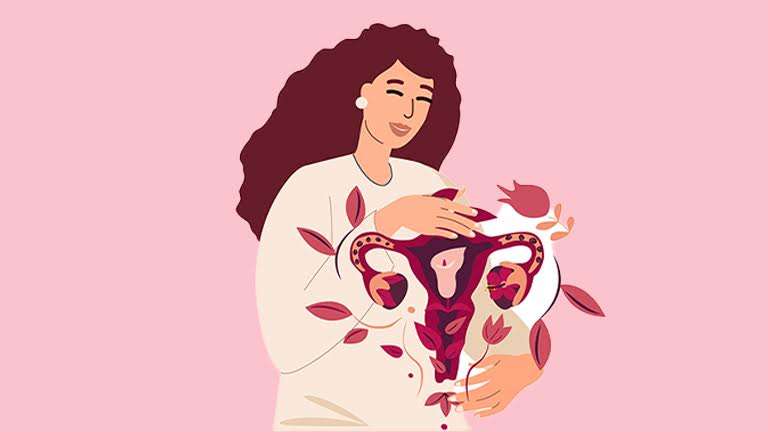
Menopause is a natural event that affects half of humankind, but there is no universal experience. Based on natural menopause alone it is estimated that the number of menopausal women worldwide will reach 1.1 billion by 2030; yet, why is it that we still know so little about it?
The stigma that surrounds menopause and the symptoms that accompany it can impact the self-esteem of women experiencing this life stage.
Out of the blue, Priya started to experience low mood and depression in her mid-40’s. As much as she tried to keep her home life and emotional state consistent, she couldn’t separate her mood from her work.
Priya prided herself on her work and leadership but her mood swings made her feel incapable and unworthy of her position at work. She lost confidence in her capabilities at work and contemplated leaving her job.
After thorough medical testing Priya learned that she was in perimenopause. Up until that point, Priya had no idea that the brain was affected by the natural transition known as menopause.
After learning she was in perimenopause Priya started receiving treatment that helped balance her hormones, improve her mood and her cognitive function.
Understanding the Menopause Brain
Menopause is the last taboo in women’s health. It is a subject that is limited in scientific research, it is not taught in schools, it’s rarely a topic discussed in families and historically there has been no cultural support for women in this stage of life.
Most people are aware that menopause is the end of a woman’s childbearing years as her menstrual cycle comes to a halt. This can cause symptoms such as changes to mood like low mood, irritability, hot flashes, anxiety and depression, disrupted sleep, night sweats and heart palpitations. What most people are not so familiar with is that these symptoms are neurological and in fact initiated by the brain.
The results of the Study of Women’s Health Across the Nation (SWAN), a large longitudinal, multiethnic, community-based study of the ovarian aging, showed that anxiety is prevalent during the menopausal transition and in early post menopause (Bromberger JT et al, 2013)
An Australian study indicated that women in the perimenopausal and postmenopausal phases had a higher risk of more severe depressive symptoms than women in the premenopausal period without a history of depression (Mulhall S et al, 2018)
Recently, new research on “The Menopause Brain” by Dr Lisa Mosconi and colleagues (2021) highlighted the role the brain plays during the menopause transition. Through brain imaging of women in premenopausal, perimenopause and post menopause, Dr Mosconi and her team have found that it’s not just brain energy that changes during menopause; the brain’s structure, regional connectivity and overall chemistry is impacted. In fact, Dr Mosconi’s research has shown that menopause is a neurologically active process that changes the brain.
Are your menopause symptoms all in your head? Absolutely not! Scientific research is proving that the physical and mental symptoms you experience and to what degree you experience them is profoundly linked to the changes in your brain.

Identifying and managing menopause symptoms
For many women the natural menopause transition will take place between the ages of 45-55 years however every woman’s menopause transition is different. The British Menopause Society, 2022 reported that 75% of women will experience menopause symptoms, 25% of women describe these symptoms as severe and 1 in 3 women experience symptoms beyond the average of 7 years. Also, of the 34 known symptoms associated with the menopause transition each woman will experience symptoms uniquely and to varying degrees.
Here are four tips to help you feel confident in your menopause transition
- Knowledge is power. Transitioning into menopause requires learning about the transition symptoms, and managing them. Working with medical professionals, trusted websites and seeking support from older members of the family.
- Listen to your body. Disrupted sleep, hot flashes, mood changes, and anxiety are some of the issues associated with menopause. Pay attention to how your body is communicating with you. A menopause symptom tracker could help identify the symptoms and aid in your communication with your medical professional.
- Speak with a healthcare professional. Explore a women’s healthcare programme that supports you through every aspect of menopause holistically. This may include check-ups, medical guidance, mental health support, Chinese medication treatments, symptom relief treatments, and valuable nutrition advice.
- Open up and ask for help. Don’t suffer in silence. Have an open and honest conversation with a loved one or a friend to discuss the symptoms you are experiencing due to the menopause transition. This can significantly reduce the pressure you may be feeling and improve your quality of life.
Priya’s experience is not unique. Sadly, it is more common than not that women lack understanding of the menopause transition and the impact it can have on their quality of life. It highlights the importance of menopause awareness and education so that women are more informed and can access solutions that support their physical and mental health for a positive transition.
Photo Credits:
First image: MariamArsaliaa
Second image: insta_photos
References
Bromberger JT, Kravitz HM, Chang Y, Randolph JF Jr, Avis NE, Gold EB, et al. Does risk for anxiety increase during the menopausal transition? Study of women’s health across the nation. Menopause 2013;20:488–95.
Mulhall S, Andel R, Anstey K.J, Variation in symptoms of depression and anxiety in midlife women by menopausal status: Maturitas, 2018; 108(3):7-12.
Lisa Mosconi, Valentina Berti, Jonathan Dyke, et al., “Menopause Impacts Human Brain Structure, Connectivity, Energy Metabolism, and Amyloid-Beta Deposition,” Scientific Reports 11 (2021), article 10867

Lisa Tarquini
About the author
Lisa Tarquini is a Licensed Menopause Champion, and founder of The Menopause Space. A space for anyone impacted by menopause to access resources and support for a positive and healthy transition. Lisa is on a mission to raise awareness, educate and empower anyone impacted by menopause.
Recently Added
Adaptogens are a class of natural herbs, roots, and mushrooms that assist the body in adapting to stressors in the environment. These …
The journey of raising children comes with countless moments where they need our support and guidance. Whether our children are typically developing …
The World Infant, Child and Adolescent Mental Health Day was first initiated to highlight the importance of mental health, starting from the …




